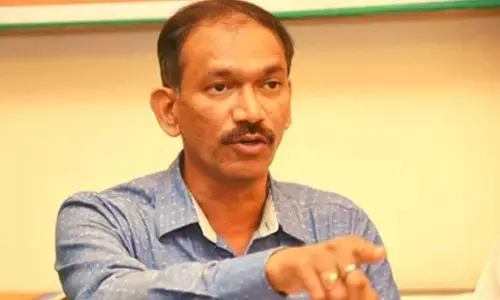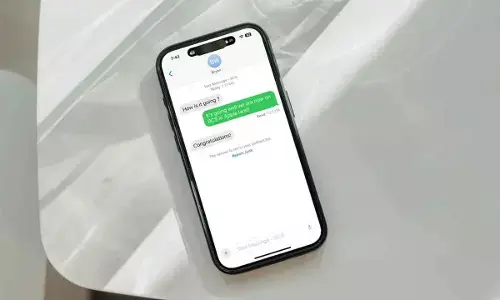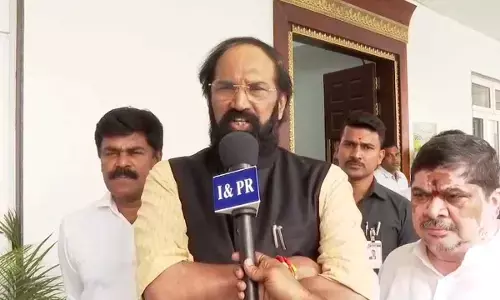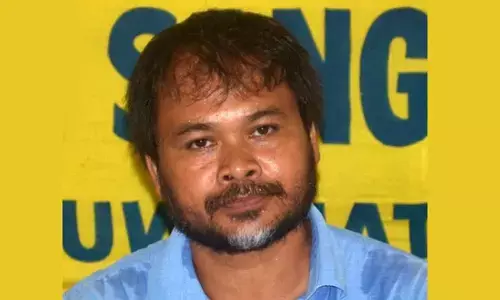Inflection point in Sino-Indian ties?

With the ongoing BRICS summit in Xiamen of China unequivocally naming Pakistan-based Jaish-e-Mohammad (JeM) and Lashkar-e-Taiba (LeT) as terror organisations, India could be said to have achieved a significant success in its fight against terror. This underscores a shift in China\'s position.
With the ongoing BRICS summit in Xiamen of China unequivocally naming Pakistan-based Jaish-e-Mohammad (JeM) and Lashkar-e-Taiba (LeT) as terror organisations, India could be said to have achieved a significant success in its fight against terror. This underscores a shift in China's position.
India has always been maintaining that there is no good terror and bad terror in the world and that all forms of terror must be recognised as bad for the world. Yet neither the Western world nor China ever has been on the same page and it only tried to placate Pakistan more. Only recently the US attitude changed a bit and started naming individuals as global terrorists. China has always refused to brand Masood Azhar a terrorist or his outfit, Jaish-e-Mohammad, a terror organisation.
India has been attempting to get Masood Azhar branded a global terrorist and has been seeking to get JeM included in the UN Security Council black list of groups linked to al Qaeda accusing Masood of masterminding several attacks including an assault on an Indian air base in January last year.
India's frustration over China's role is well known in this regard. Last year China became the only member to put a technical hold on India's application in the 15-member UN organ with all other 14 members of the Council supported New Delhi's bid secure the terror tag for Masood Azhar.
Recently, China had once again extended the technical hold by three more months on the US, France and UK-sponsored proposal to list the group and its chief as a designated as part of terror outfits. In fact, the technical hold was to expire on August 2 this year after China blocked the move in February.
India's case has been that Masood Azhar should be enlisted under the 1267 sanctions list that would subject him to an assets freeze and travel ban. India had vowed to pursue the case through all available mechanisms then. Finally, it succeeded this Monday in securing the official stamp of the BRICS members to its proposal. This move now removes a key irritant in the Sino-Indian relations.
The Xiamen Declaration said, "We express concern on the security situation in the region and violence caused by the Taliban, the Islamic State, Al Qaeda and its affiliates, including the Haqqani Network, Lashkar-e-Taiba, Jaish-e-Mohammad, Tehreek-i-Taliban Pakistan and Hizbut Tahrir." It is to be seen how sincere China would now be in implementing the contents of the Declaration in letter and spirit. Whether it will now lift its technical hold on Masood Azhar's issue in the UN Security Council will be watched now keenly by India.
This is just one of the irritants that India faces with China. Support for India’s bid to enter the Nuclear Suppliers Group has been increasing but China remains firmly opposed to it. India applied for membership to the 48-country group in March 2016 and has aggressively campaigned on its case around the world. It has received support from various members of the NSG such as the United States, the United Kingdom, Japan, Mexico, France and Germany.
The improvement in India’s chances of entering the NSG has been the result of intense diplomatic engagement, reports indicate. China has opposed India’s membership to the NSG as New Delhi is not a signatory of the NPT. It has maintained that India’s candidature could be considered only after the NSG had drawn up guidelines for admission of countries that have not signed the NPT. This would include Pakistan – its all-weather ally – that has also expressed a wish to enter the group.
In the BRICS decision to converge on counterterrorism, China and India could be said to be strengthening the CBMs (Confidence Building Measures) post-Doklam whereas India has already conveyed to China that it wanted to open a new chapter in its ties with China. Whether both the countries now bury the ghost of Doklam and move ahead cannot be said as there are too many flash points in the long borders of the country and too many disputes.
Could this be called an inflection point in the relations of the two countries? Based on mathematical charting models, the inflection point is where the direction of a curve changes in response to an event. In order to qualify, the shift must be noticeable or decisive and attributed to a particular cause.
Chinese President Xi Jinping on Sunday had also highlighted the urgency of avoiding “confrontation” as the security template for the five emerging economies, which are setting course on the second decade of their collaboration. He underscored that the BRICS grouping must uphold the value of diplomacy to resolve “hotspot issues.” Will diplomacy resolve Sino-Indian differences really?
By W Chandrakanth









